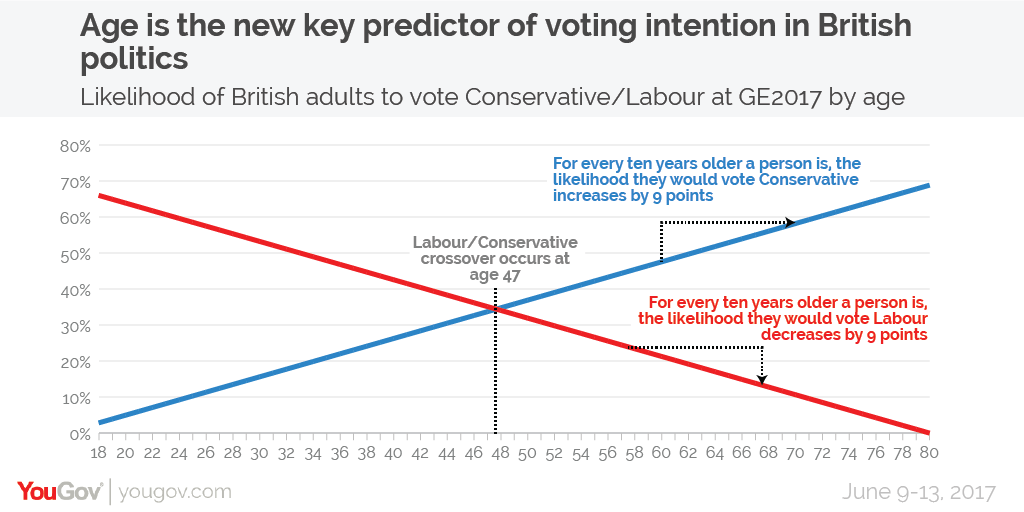In electoral terms, age seems to be the new dividing line in British politics. The starkest way to show this is to note that, amongst first time voters (those aged 18 and 19), Labour was forty seven percentage points ahead. Amongst those aged over 70, the Conservatives had a lead of fifty percentage points.
In fact, for every 10 years older a voter is, their chance of voting Tory increases by around nine points and the chance of them voting Labour decreases by nine points. The tipping point, that is the age at which a voter is more likely to have voted Conservative than Labour, is now 47 – up from 34 at the start of the campaign.

However, as they note, the problem for politicians is that young people are less likely to vote than older people and, of course, the older population is currently growing at a more rapid rate than the younger population. To be sure, those two facts may have inspired Conservatives to think that the snap election was a good idea. Other factors were obviously at work here because the tipping point age from Labour to Conservative, as noted in the paragraph above, went up during the course of the election campaign. Who knew it would be so complicated?
No comments:
Post a Comment